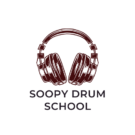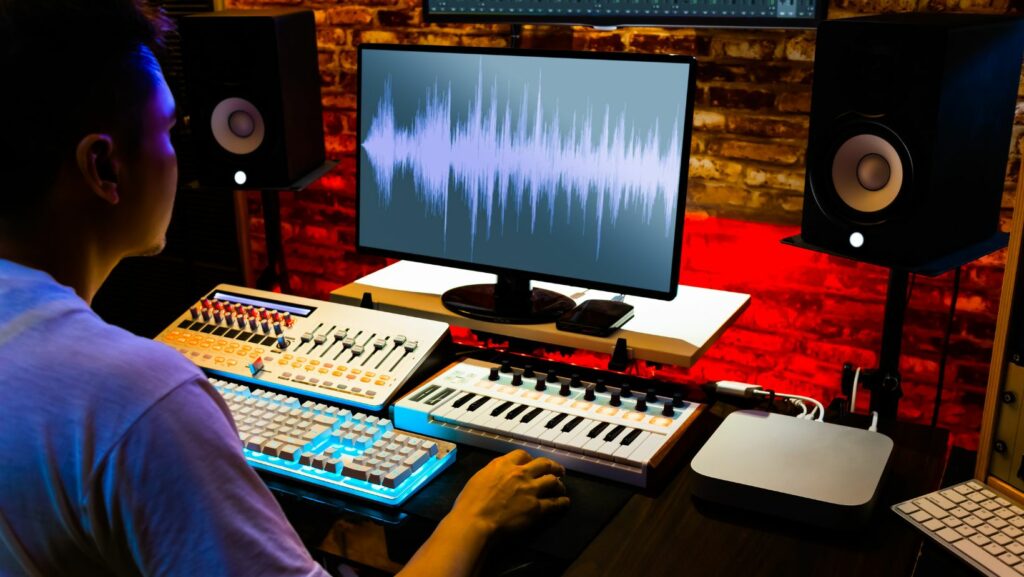Music production has evolved into a dynamic and sought-after field where creativity meets technology. As the music industry continues to transform, aspiring producers now have the opportunity to pursue formal education through dedicated music production programs at colleges and universities worldwide.
A music production major equips students with essential skills in audio engineering, music theory, digital audio workstations (DAWs), and industry-standard recording techniques. This comprehensive program blends traditional musical knowledge with cutting-edge production methods preparing graduates for diverse careers in recording studios media companies and entertainment venues. Whether someone dreams of producing chart-topping hits or creating soundtracks for films they’ll find the foundation they need through this specialized degree path.
Music Production Major
A music production major equips students with technical expertise in audio recording, mixing, mastering while developing their musical creativity. The program combines hands-on studio experience with theoretical knowledge in sound engineering, music business, and creative composition.
Key Skills and Competencies
Music production majors develop essential proficiencies across multiple domains:
- Digital Audio Workstation (DAW) mastery in Pro Tools, Logic Pro X, Ableton Live
- Audio signal flow understanding for recording studio operations
- Sound design techniques using synthesizers, samplers, effects processors
- Critical listening abilities for mix evaluation and sound quality assessment
- Project management skills for coordinating recording sessions
- Music theory application in arrangement and composition
- Audio troubleshooting and equipment maintenance expertise
- Communication skills for collaborating with artists and clients
Core Coursework Requirements
The curriculum encompasses fundamental courses vital for professional development:
- Audio Engineering Fundamentals (signal processing, acoustics, microphone techniques)
- Music Theory and Composition (harmony, melody, rhythm, arrangement)
- Digital Audio Production (recording, editing, mixing, mastering)
- Music Business and Copyright Law
- Studio Recording Techniques
- Electronic Music Production
- Sound Design for Media
- Music Industry Marketing
- Live Sound Engineering
- Audio Post-Production
| Course Type | Hours per Week | Practical Component |
|---|---|---|
| Studio Labs | 12-15 | 75% |
| Theory Classes | 6-8 | 25% |
| Industry Projects | 8-10 | 100% |
Career Opportunities in Music Production
Music production majors access diverse career paths across the entertainment industry. The comprehensive skill set gained through this degree program opens doors to multiple professional opportunities in both studio and live environments.
Studio Producer Roles
Studio producers oversee recording sessions in professional facilities for record labels, independent artists, and media companies. Their responsibilities include:
- Managing recording schedules for vocal tracks, instrumentals, and overdubs
- Operating advanced mixing consoles to balance sound elements
- Collaborating with artists to refine arrangements and song structures
- Editing audio files using industry-standard Digital Audio Workstations
- Coordinating with session musicians and audio engineers
- Creating demo recordings for talent development
- Maintaining studio equipment and monitoring signal chains
- Setting up PA systems, microphones, and monitoring equipment
- Mixing sound levels for multiple instruments and vocals in real-time
- Operating digital mixing consoles and effects processors
- Conducting soundchecks before performances
- Troubleshooting technical issues during live events
- Managing stage monitor mixes for performers
- Coordinating with venue staff and tour managers
- Installing temporary sound reinforcement systems
- Recording live performances for broadcast or archival purposes
Essential Technology and Equipment
Music production majors rely on professional-grade tools to create industry-standard recordings. The integration of hardware equipment with digital software forms the technological foundation of modern music production.
Digital Audio Workstations
Professional music production centers on Digital Audio Workstations (DAWs) as the primary software platform. Popular DAWs include:
- Pro Tools: Industry standard for professional recording studios
- Logic Pro X: Exclusive to Mac OS with extensive virtual instrument libraries
- Ableton Live: Preferred for electronic music production & live performances
- FL Studio: Known for intuitive beat-making & pattern-based composition
- Studio One: Features comprehensive mixing & mastering capabilities
Each DAW includes essential functions:
- Multi-track recording capabilities
- MIDI sequencing tools
- Virtual instrument integration
- Audio editing features
- Mixing console emulation
- Plugin compatibility
Recording Hardware
Essential recording hardware components include:
Studio Equipment:
- Audio Interface: Focusrite Scarlett 2i2 or Universal Audio Apollo
- Studio Monitors: KRK Rokit or Yamaha HS series
- Microphones: Shure SM7B for vocals & Neumann U87 for versatile recording
- Preamps: Universal Audio 710 or Neve 1073
- Control Surfaces: Avid S1 or Mackie Control Universal Pro
- Compressors: dbx 166XL or Universal Audio LA-2A
- EQ Units: API 550b or Pultec EQP-1A
- Effects Processors: Lexicon PCM96 or TC Electronic M350
| Equipment Category | Entry Level Cost | Professional Level Cost |
|---|---|---|
| Audio Interface | $150-300 | $2,000-3,500 |
| Studio Monitors | $300-600/pair | $2,000-4,000/pair |
| Microphones | $100-400 | $1,000-3,500 |
| Control Surfaces | $300-700 | $3,000-5,000 |
Top Music Production Programs
Leading music production programs combine industry-standard facilities with experienced faculty to prepare students for professional careers. These programs offer comprehensive curricula that integrate technical expertise with creative development.
Leading Universities
- Berklee College of Music (Boston, MA) offers a comprehensive Music Production & Engineering program with 12 professional recording studios
- New York University’s Clive Davis Institute features 5 recording studios equipped with SSL consoles
- University of Southern California (Los Angeles, CA) provides access to 3 professional-grade studios through the Thornton School of Music
- Middle Tennessee State University houses 8 recording studios in its Department of Recording Industry
- University of Miami’s Frost School of Music maintains 4 recording facilities with state-of-the-art equipment
- Full Sail University (Winter Park, FL) features 110+ studios dedicated to audio production
- SAE Institute operates in 7 U.S. locations with industry-standard recording facilities
- Icon Collective (Los Angeles, CA) specializes in electronic music production with 6 production suites
- Recording Connection pairs students with professional studios for one-on-one mentorship
- Musicians Institute (Hollywood, CA) maintains 5 recording studios equipped with Pro Tools HD systems
| Institution Type | Average Program Length | Average Class Size | Number of Studios |
|---|---|---|---|
| Universities | 4 years | 15-20 students | 3-8 studios |
| Specialized Schools | 18-24 months | 8-12 students | 5-110+ studios |
Industry Connections and Internships
Music production programs cultivate strong industry partnerships that connect students with professional opportunities. These connections include relationships with:
- Recording studios – Capitol Records Internship Program offers hands-on experience in audio engineering
- Record labels – Sony Music Entertainment provides 12-week paid internships across multiple departments
- Music festivals – Coachella Valley Music Festival accepts 25 production interns each season
- Broadcasting networks – NPR’s audio engineering internship program spans 10 weeks
- Equipment manufacturers – Shure Microphones offers technical training internships
Professional Networking Opportunities
Students access networking events through:
- Guest lecture series featuring Grammy-winning producers
- Industry conferences like NAMM Show & AES Convention
- Alumni mentorship programs connecting graduates with current students
- Studio tours at major facilities like Abbey Road & Electric Lady
- Masterclasses with established producers & engineers
Internship Programs
Top internship placements include:
| Company | Duration | Focus Area |
|---|---|---|
| Universal Music Group | 16 weeks | Studio Production |
| Live Nation | 12 weeks | Live Sound |
| Warner Music | 10 weeks | Post-Production |
| Atlantic Records | 8 weeks | Audio Engineering |
| iHeartMedia | 12 weeks | Radio Production |
Industry Partnerships
Music production programs collaborate with industry leaders through:
- Equipment sponsorships from brands like Roland & Native Instruments
- Software partnerships providing student licenses for Pro Tools & Logic Pro
- Recording studio affiliations for off-campus training
- Research projects with audio technology companies
- Career development workshops led by industry professionals
These connections create pathways for students to transition from academic training to professional roles in music production.
Costs and Financial Considerations
Music production programs require significant financial investment across several categories:
Tuition and Program Fees
Annual tuition rates for music production programs vary by institution type:
| Institution Type | Annual Tuition Range (USD) |
|---|---|
| Private Universities | $35,000 – $55,000 |
| Public Universities (In-State) | $10,000 – $25,000 |
| Public Universities (Out-of-State) | $25,000 – $45,000 |
| Specialized Music Schools | $30,000 – $50,000 |
Equipment and Software Expenses
Essential personal equipment costs include:
- Audio interface: $200-$800
- Studio monitors: $300-$1,000 per pair
- Professional headphones: $150-$400
- MIDI controller: $100-$500
- Microphone setup: $300-$1,000
- DAW software license: $200-$700
Additional Program Costs
Supplementary expenses encompass:
- Studio time fees: $500-$1,500 per semester
- Course materials: $200-$500 per semester
- Software subscriptions: $100-$300 annually
- Required audio plugins: $500-$2,000 total
- Equipment maintenance: $200-$500 annually
Financial Aid Options
Available funding sources include:
- Merit-based scholarships from music departments
- Industry-sponsored grants from equipment manufacturers
- Federal student loans with income-based repayment plans
- Work-study positions in campus recording facilities
- Teaching assistant opportunities in production labs
| Position | Entry-Level Salary Range |
|---|---|
| Studio Producer | $35,000-$50,000 |
| Live Sound Engineer | $30,000-$45,000 |
| Music Editor | $40,000-$55,000 |
| Post-Production Specialist | $45,000-$60,000 |
Ever-evolving Music Industry
A music production major offers a comprehensive pathway into the ever-evolving music industry. Through intensive training in both technical and creative aspects students develop the skills needed to thrive in various professional settings. The combination of hands-on experience state-of-the-art equipment and industry connections creates a solid foundation for aspiring producers.
While the financial investment can be substantial the potential career opportunities and professional growth make it a worthwhile consideration for those passionate about music production. As technology continues to advance and the industry expands music production graduates will find themselves well-positioned to shape the future of sound.

